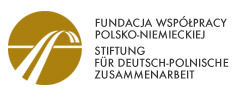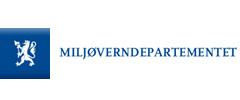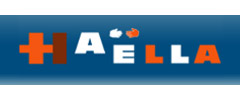Aarhus Convention
Results of the Working Group Meeting, May 2007
07.05.2007 |Anke Stock
The Working Group is established to oversee the implementation of the work programme and to prepare the Meetings of the Parties. This meeting was already looking at the 3rd Meeting of the Parties due to take place from 8 to 13 June 2008 in Riga/Latvia.
STATUS OF RATIFICATION
The meeting started with a short summary of the status of ratification of the Convention and the Protocol on Pollutant Release and Transfer Registers (PRTR). Since the previous meeting Germany and Croatia had ratified the Convention, bringing the number of Parties to 41. The Protocol on PRTR has up to now three approvals and ratifications (European Community, Luxembourg and Switzerland). About ten other States indicated their intention to ratify the protocol this or next year. The amendment on genetically modified organisms had been approved or ratified by Bulgaria, Denmark and Luxembourg. The European Community has approved the amendment, but has yet to deposit the instrument. 9 other States indicated their intention to ratify the amendment this or next year.
POLLUTANT RELEASE AND TRANSFER REGISTERS
The Chair of the Working Group on PRTRs reported on the outcomes of the fourth meeting of the Working Group held in February 2007 (see here for report). The Chair hoped that the entry into force of the PRTR Protocol could still occur in 2008 so that a first Meeting of the Parties could be held back-to-back with the third Meeting of the Parties to the Convention in Riga in June 2008.
Furthermore, the status of the preparations for the first Meeting of the Parties was discussed. ECO-Forum complained about the slow progress that had been made in relation to the rules of procedures and the compliance review mechanism under the Protocol. Especially, the issues whether the compliance review mechanisms would allow communications from the public and whether NGOs should have observer status in the Bureau remains to be resolved. ECO-Forum reminded the Parties of their obligations under the Aarhus Convention to adhere by its principles of public participation and access to justice.
GENETICALLY MODIFIED ORGANISMS
The question of the entry into force of the amendment on genetically modified organisms was still open. It was reported about the procedure to clarify the Convention’s provision dealing with the conditions for the entry into force of amendments (art. 14 para. 4). An ad hoc group of legal experts was advising the Bureau and the secretariat on the issue. A draft decision will be submitted to the Working Group for consideration at its ninth session in February 2008.
Furthermore, the organisation of a workshop on GMOs was discussed. Initially it was planned to hold it back-to-back with the fourth Conference of the Parties serving as the Meeting of the Parties to the Cartagena Protocol which will be held in Bonn/Germany from May 12-16, 2008. However, Germany indicated that there might be practical difficulties in holding the workshop in Bonn at the same time. Now there are ideas to hold the workshop in the Netherlands.
PUBLIC PARTICIPATION IN INTERNATIONAL FORUMS
The Chair of the Task Force on Public Participation in International Forums (PPIF) reported on the consultation process on the Almaty Guidelines that had started in June 2006 with a written questionnaire and was about to be finalised in July 2007. He referred to the papers prepared by the secretariat that contained detailed information on the replies sent by the different international forums on each question of the questionnaire (see the UNECE website).
Furthermore, he reported on the preparations for the International Workshop on Involving the Public in International Forums to be held in Geneva on 20 and 21 June 2007. A final programme and the invitation for interested international forums, NGOs and other stakeholders will be made available very shortly.
The Chair also proposed a procedure for the submission of comments by Parties, Signatories, other interested States, NGOs and other relevant actors relating to their experience with the application of the Guidelines for consideration by the Task Force in accordance with decision II/4. The secretariat will write to all interested stakeholders. The deadline to send in such comments is 1 October 2007.
A number of delegations, including Germany on behalf of the European Union, Norway and ECO-Forum stressed the importance of internal consultation. Since there was a common understanding of the necessity of internal consultation to make the Guidelines work there is hope that more will be undertaken in this regard by the Parties.
Germany for the European Union said that there has not yet been sufficient time to gain broad practical experience with the application of the Guidelines and that, as a result, there was no recognisable need for a revision of the Guidelines at this stage.
ACCESS TO JUSTICE
The Chair of the Task Force on Access to Justice informed the meeting on the progress in implementation of the activities undertaken by the Task Force.
Two high-level judicial workshops on access to justice are planned: one to be held in Kiev/Ukraine on 4 and 5 June 2007 and another in Central Asia in 2008.
The next meeting of the Task Force was scheduled to take place on 10-11 September 2007 in Geneva. The meeting will focus on possible ways in which work on access to justice would be carried out after the third Meeting of the Parties. It is also planned to hold a mini-conference on various aspects of implementation of article 9 back-to-back to this meeting.
ELECTRONIC INFORMATION TOOLS AND THE CLEARINGHOUSE MECHANISM
The secretariat reported on the work of the Task Force (see here for the report) and the first capacity-building workshop on electronic information tools on the clearinghouse mechanism held at the headquarters of REC in Szentendre/Hungary on 8 and 9 March 2007. The target countries of this workshop were South-East European countries. Another workshop will be held in June 2008 in Almaty/Kazakhstan which will concentrate on EECCA countries.
Furthermore, it was reported on the further development of the Aarhus clearinghouse mechanism. A new upgrade of the central node of the clearinghouse http://aarhusclearinghouse.unece.org/) will be launched on 21 May 2007 during the World Summit on Information Society Cluster of Events in Geneva.
REPORTING REQUIREMENTS
The Chair of the Compliance Committee presented a paper on reporting requirements with respect to the upcoming second reporting cycle in preparation for the third Meeting of the Parties in Riga in June 2007.
Important to notice is the timing: Mid-December 2007 national reports have to be submitted to the secretariat. This means that public consultation, i.e. input from NGOs, is only possible up until Mid-November 2007.
COMPLIANCE MECHANISM
The Chair of the Compliance Committee reported on the work of the Committee. The Committee had held four meetings in the period since the sixth meeting of the Working Group. 2 communications from the public had been finalised and 4 other communications are currently under consideration.
ECO-Forum noted the need to stronger focus on the implementation of the national implementation strategies. It mentioned as particular difficult Kazakhstan.
CAPACITY BUILDING
The secretariat reported on the implementation of capacity-building activities (see here for the report).
It was noted that the biggest need for capacity-building was still on the access to justice issue. Furthermore, it could be noted that the number of activities has decreased, but that the activities now had a more holistic approach. Most of the activities took place in EECCA countries with the support of international NGOs.
LONG TERM STRATEGIC PLANNING
An expert group had prepared a draft long term strategic plan that is open for comments until 31 May 2007. With this procedure in mind, it was agreed not to discuss the draft elements at the meeting.
FINANCIAL REPORT FOR 2006/IMPLEMENTATION OF THE WORK PROGRAMME 2006-2008
The secretariat presented the report on financial contributions and expenditures in 2006.
The Chair invited the delegations to state the amount of contributions intended to be contributed by their governments for 2007 and 2008. The secretariat also highlighted that late contributions made planning difficult and uncertain.
FINANCIAL ARRANGEMENTS
Since financial arrangements had proved not to work sufficiently the Bureau proposed the adoption of a decision on financial arrangements. The Chair presented a paper which set out two legally binding and two non-legally binding options with regard to the adoption of a draft decision on financial arrangements.
The Parties agreed to delete option 1A and 1B and to work on the basis of option 2A and 2 B taking into account a possibility that more binding language could be used.
PREPARATIONS FOR THE THIRD ORDINARY MEETING OF THE PARTIES
Latvia presented its present preparations for the third MOP to be held from 8 to 13 June 2008 in Riga.
ANY OTHER BUSINESS
Many delegations expressed their concerns about delays in making official documents available. The secretariat explained that this was due to the overburdening of UN translation services and rules on simultaneous release of documents in all official languages.


































